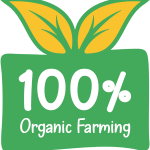Premium West African agro-commodities—ethically sourced, quality assured





At Witford Nigeria, we pride ourselves on sourcing and delivering
only the finest natural ingredients—cultivated with care, processed with precision, and shipped with integrity.
Hand-picked excellence from Nigeria’s top orchards, graded and packed for global snack and confectionery markets
Nutrient-rich, non-GMO beans sun-dried in Northern Nigeria—ideal for food processors and animal feed producers.
Vibrant crimson petals, hygienically dried to preserve flavor and color—perfect for teas, beverages, and nutraceuticals.
Aromatic, sun-dried rhizomes and finely ground powder—sourced from fertile Nigerian fields for spice and wellness markets.
We’re committed to pure, organic farming from seed to harvest. That means no synthetic chemicals, no artificial fertilisers, and absolutely no pesticides—just clean, honest produce
Each product is handpicked to meet the highest standards. We focus on taste, texture, and appearance to ensure every bite is a premium experience.
From planting to packaging, quality is our priority. We nurture every crop with care to deliver unbeatable freshness and flavour.
We harvest at peak ripeness and deliver fast—so you get produce as fresh as the moment it was picked.
Our produce is packed with essential nutrients to support your wellbeing. It’s wholesome, natural food that fuels a healthier you.
No additives. No GMOs. Just food grown the way nature intended—pure, clean, and full of integrity.
Agriculture is the backbone of our society, providing food,
raw materials, and economic stability.




You can reach out directly by calling us or sending an email to request a quote. Our trade team will respond promptly with pricing, availability, and shipping timelines tailored to your needs.
We source directly from trusted aggregators and local farmers across Nigeria's top agricultural regions. This ensures consistent quality, traceability, and support for rural farming communities.
We source directly from trusted aggregators and local farmers across Nigeria's top agricultural regions. This ensures consistent quality, traceability, and support for rural farming communities.
Our cashew goes through a meticulous process: Sorting → Drying → Quality Checks → Bagging → Final Preparation for Export. Each step follows international food safety and quality control standards.
Nigerian cashews are known for their large kernel size, rich flavour, and chemical-free drying process. Our nuts meet global specifications and are processed under clean, traceable conditions.
Yes - we export worldwide and partner with experienced logistics providers to ensure safe, timely delivery of bulk shipments.
Absolutely. We provide samples upon request so you can verify quality before placing a bulk order.
Yes, we supply all required export documents including quality certificates, phytosanitary reports, and traceability logs.
We welcome B2B partnerships. If you're interested in distribution or long-term supply, contact us directly to start the conversation.
We are based in Ogbomoso, Oyo State — a key region for premium cashew sourcing and aggregation.

Since 2016, Witford Nigeria has ethically sourced and exported premium cashew nuts, hibiscus, soybeans, sesame, and ginger—backed by ISO 22000–certified processes and SGS inspections. We reinvest 5% of profits into farmer training and community development to drive sustainable growth.
Iya-oje Road , surulere local government, ogbomoso , Oyo state , Nigeria
+2348133611462
© 2025 Witford Nigeria Ltd. All Rights Reserved.